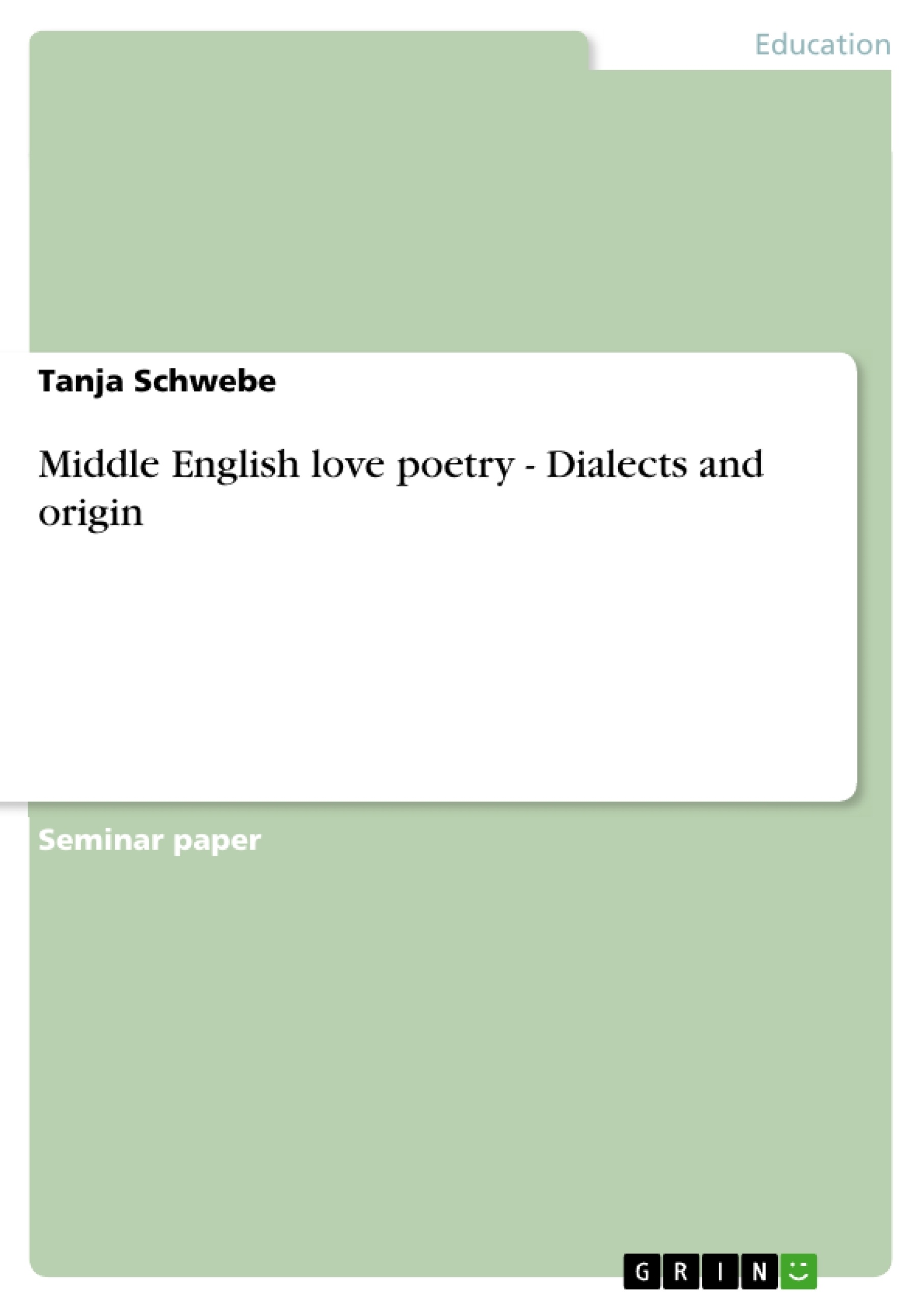This work deals with the historical background and the origin of Middle English Love Poetry. The origin of a poem can be discovered by taking a closer look at its language.
General information about the historical background of the period, the social and literary situation and the purpose of love poetry will be given.
The main part will illustrate, which dialects were used in poetry an literary writing. It´ll also try to locate some well-known poems by means of dialect and social background and give a short interpretation as well.
Inhaltsverzeichnis (Table of Contents)
- 1. Introduction
- 2. Historical Background
- 2.1 Social Situation
- 2.2 Language and Literary Situation
- 2.3 Purpose and Contents of Middle English Love Poetry
- 3. Dialects and “Isoglosses” In Middle English
- 4. Origin of Love Poetry
- 5. Summary
Zielsetzung und Themenschwerpunkte (Objectives and Key Themes)
This paper explores the historical background of Middle English love poetry, focusing on the social and literary context surrounding these anonymous works. The paper delves into the dialects used in these poems and attempts to locate their origins based on dialectal features and social background.
- Social context of Middle English love poetry
- The role of dialect in identifying the origins of poems
- The social background of the authors
- The purpose and content of Middle English love poetry
- The historical context of the period, including the Hundred Years War and the Black Death.
Zusammenfassung der Kapitel (Chapter Summaries)
The introduction discusses the anonymity of early Middle English love poetry, particularly those written in the 14th century. It contrasts this with the known authors of later poems, like Geoffrey Chaucer and Charles d'Orléans, who were associated with the aristocracy and London. The paper outlines its aim to investigate the dialects used in love poetry and their potential for identifying the origins of these anonymous works.
Chapter 2, "Historical Background," examines the social situation of the period, including the impact of the Hundred Years War and the Black Death. It describes the strict social hierarchy of the time, with the Church at the top, followed by the king and aristocracy. The chapter also discusses the impact of the Church on the lives of the people, emphasizing their piety and the severe consequences of challenging the established order.
Schlüsselwörter (Keywords)
This paper focuses on the social context, dialectal variations, and origin of anonymous Middle English love poetry. Key terms include: Middle English, dialects, love poetry, social hierarchy, aristocracy, Church, Hundred Years War, Black Death, and anonymous authors.
Frequently Asked Questions
How can the origin of Middle English love poems be identified?
By analyzing the specific dialects and linguistic features (isoglosses) used in the text, researchers can often locate the geographic origin of anonymous poems.
What was the social hierarchy during the Middle English period?
The hierarchy was strict, with the Church at the top, followed by the King, the aristocracy, and then the common people.
Who were the known authors of later Middle English poetry?
Later famous authors include Geoffrey Chaucer and Charles d'Orléans, both of whom were closely associated with the aristocracy and London.
How did the Black Death affect the literary situation?
The Black Death, along with the Hundred Years War, created a turbulent historical background that influenced the themes and production of literature during that era.
What is the main purpose of Middle English love poetry?
While often anonymous, these poems served to express courtly love, social values, and sometimes religious devotion within the literary traditions of the time.
- Quote paper
- Tanja Schwebe (Author), 2001, Middle English love poetry - Dialects and origin, Munich, GRIN Verlag, https://www.grin.com/document/5326



